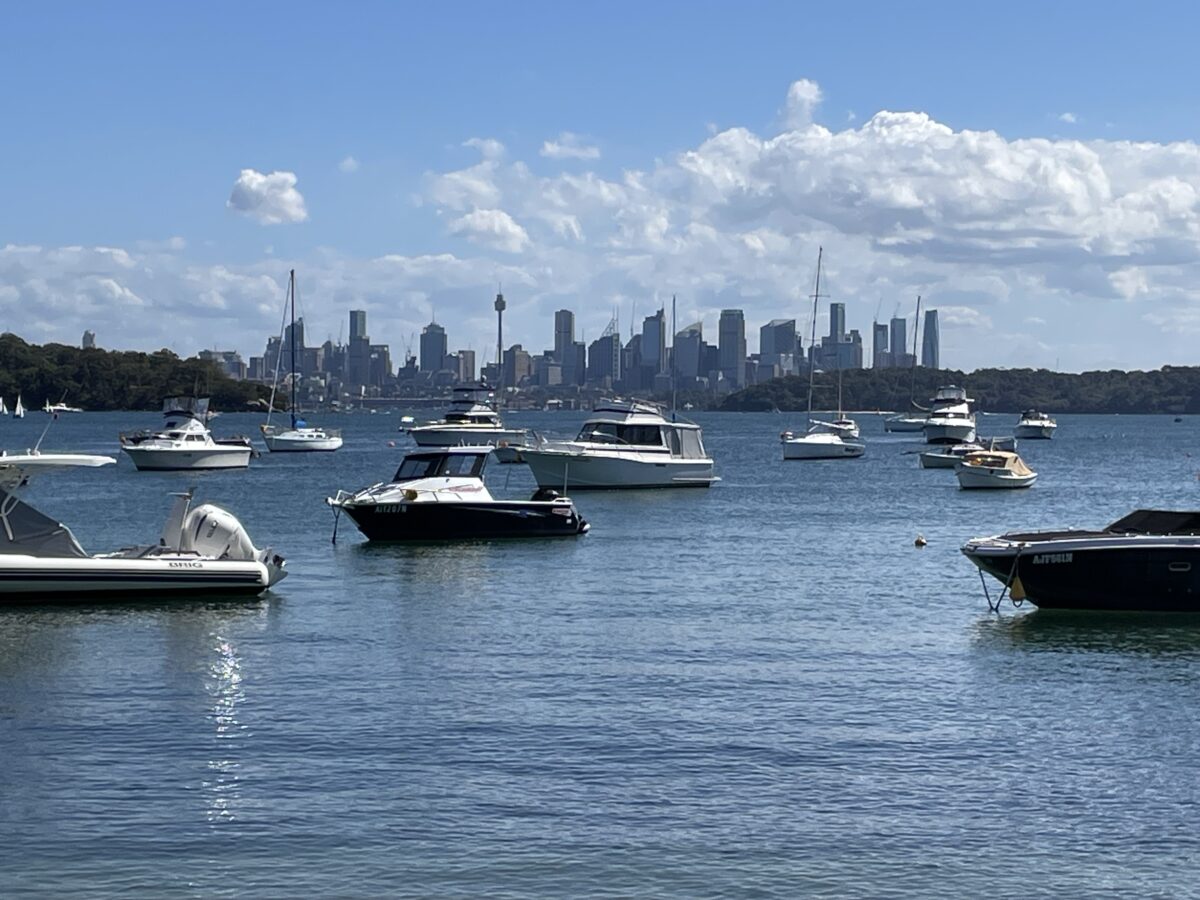By Mike Swadling
“The Voice referendum result has been described as Australia’s Brexit moment, with the referendum backed by the metropolitan elite and major institutions being thoroughly rejected by the people”
I happened to be in Sydney Australia for October’s ‘Indigenous Voice referendum’. Whilst my focus was mainly on glorious views of Sydney Harbour and sampling a few schooners worth of the local brew, I did notice the election campaign going on around me.
The Voice referendum result has been described as Australia’s Brexit moment, with the referendum backed by the metropolitan elite and major institutions being thoroughly rejected by the people. I’m not best placed to write about the issues at play and the referendum result, but rather what I observed in Australia during the campaign and just after the results were in. For more on Australian politics, I would recommend following Helen Dale, and you can read her here on ‘Why Australia’s Voice vote failed’.
Maybe this is the way of the modern world, but whilst in Sydney I probably saw more about the Voice referendum on my phone from international social media and political web sites, than on the streets, in conversation or watching the local TV news. Ordinary Australians just didn’t seem that bothered by the vote. Now this may be because in past 120 years Australia has already had 45 referendums (for constitutional changes) and 4 plebiscites (for non-constitutional issues). Also, with compulsory voting there is no need for the ‘Get out the vote’ (GOTV) campaigns we see here.
“The Yes campaigners outnumbered No’s considerably, but there were good natured interactions between both, some of whom were chatting, and both occupied the same area to hand out leaflets”
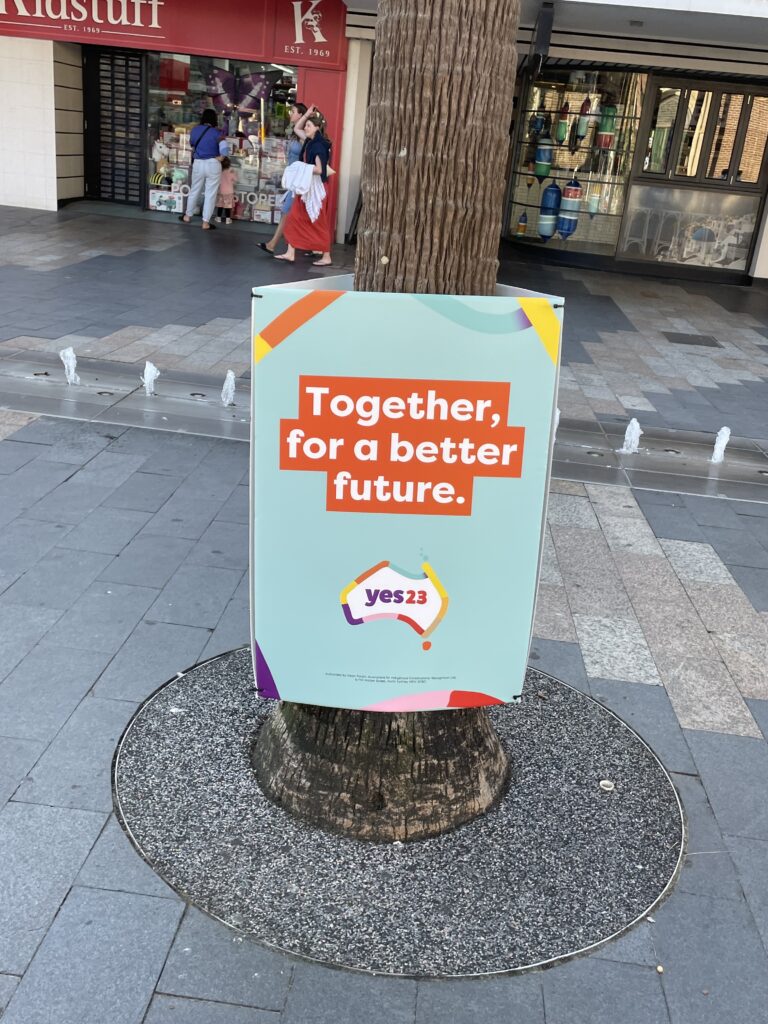
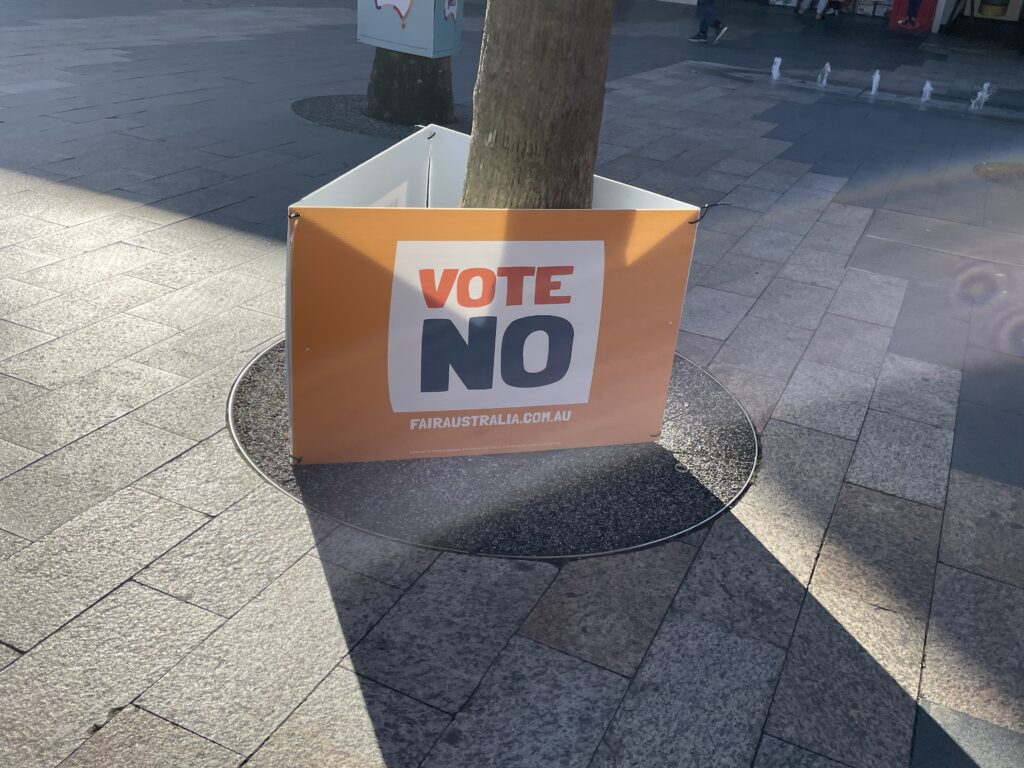
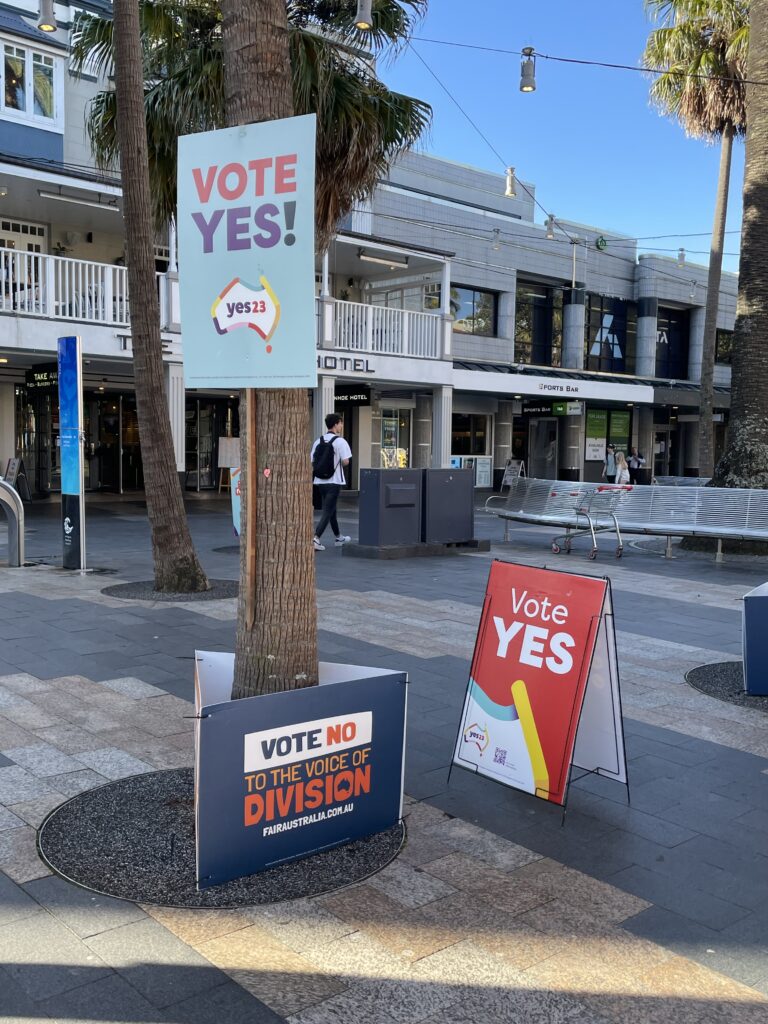
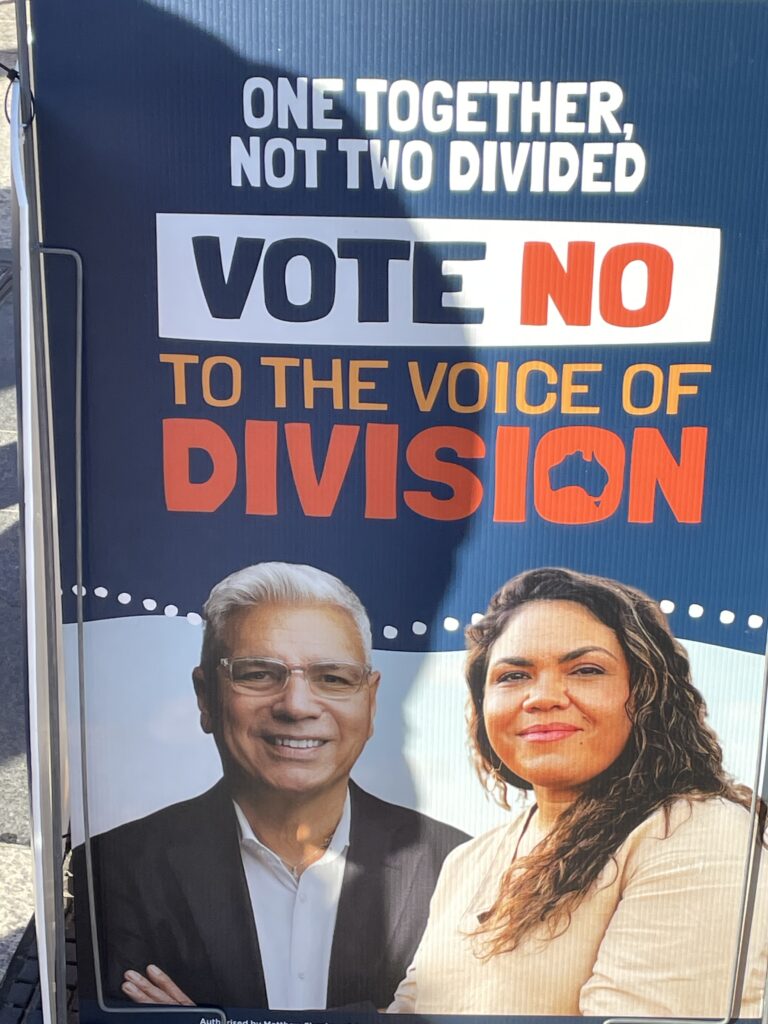
This is not to say the referendum wasn’t spoken about or campaigned on. Getting off the ferry at Manly Wharf I saw a dozen or so campaigners from both sides handing out leaflets to those on their way to the famous beach. The Yes campaigners outnumbered No’s considerably, but there were good natured interactions between both, some of whom were chatting, and both occupied the same area to hand out leaflets. Having done many a street stall and leafleting session in the UK I can say generally opposing parties or sides would be civil and occasionally friendly. Civility is however generally maintained by having a respectful distance between both (or multiple) groups, and where occasionally needed, calming down more excitable participants.
“The suburban Sydneysiders of all ages I spoke with were voting No in the referendum, which seemed a statistical anomaly until the results came in”
This contrasted with the media representation of a nation divided. Much like in our EU Referendum many in the media had decided only a Yes vote was acceptable and somehow even contemplating a No vote was beyond the pale (an example here from our ever even-handed and impartial BBC). Whilst famously plain spoken, it was noticeable that older Australians with little to lose were much more vocally critical of referendum proposals than those in middle age, and with teenage children. As one explained “ahh they keep correcting what I say, they get brainwashed with this stuff at school”. The suburban Sydneysiders of all ages I spoke with were voting No in the referendum, which seemed a statistical anomaly until the results came in.
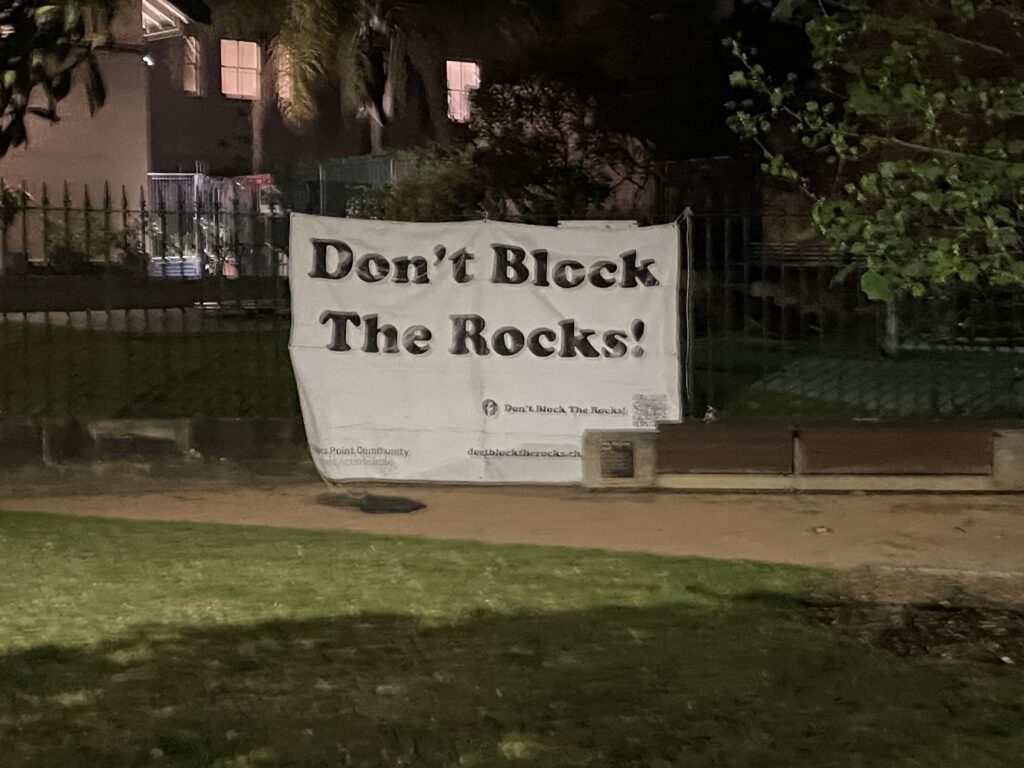
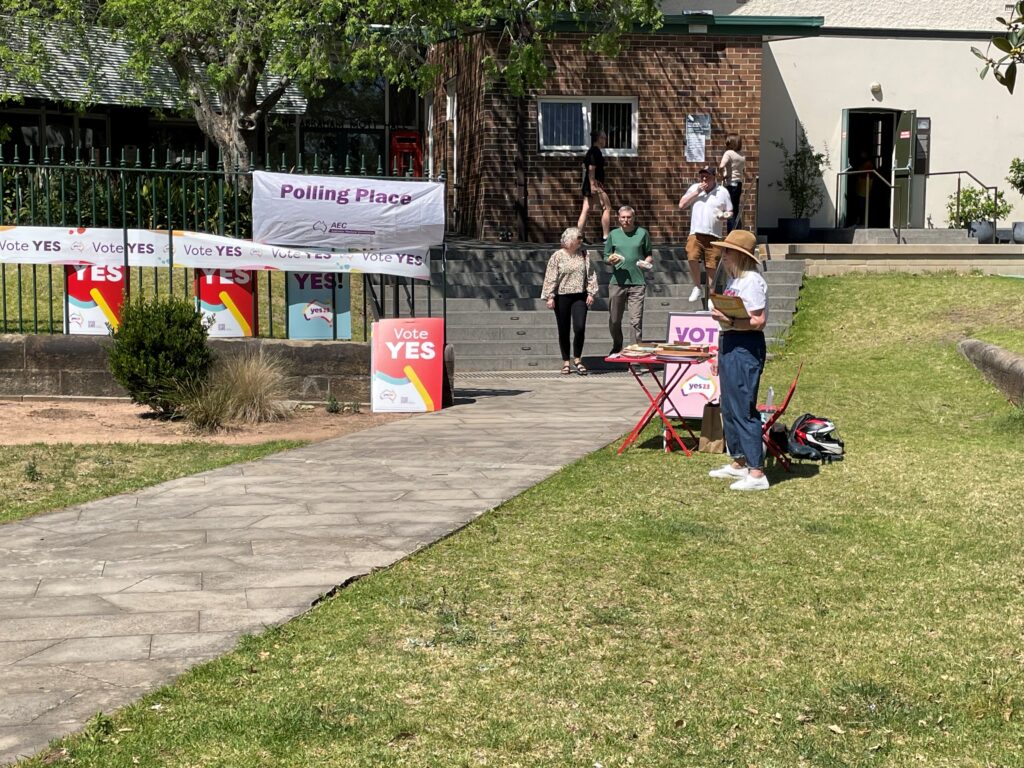
“for most of the week leading up to the referendum the main political activity I saw in the area was for the ‘Don’t Block The Rocks!’ campaign against proposed harbourside development”
The whole referendum didn’t feel like a big a deal on the ground as it did in the media. Staying in The Rocks, an area sandwiched between Sydney Harbour Bridge and the Central Business District, with great views, and average ‘unit’ prices of over AU$2million (~£1million), I was in what should be the passionate centre of Yes voters. Indeed, in a site unusual for us in the UK, on voting day the local polling station was engulfed in Yes campaign posters. However, for most of the week leading up to the referendum the main political activity I saw in the area was for the ‘Don’t Block The Rocks!’ campaign against proposed harbourside development. Even at a 21st Birthday party on the day of polling none of the young guests appeared to be talking about the vote.
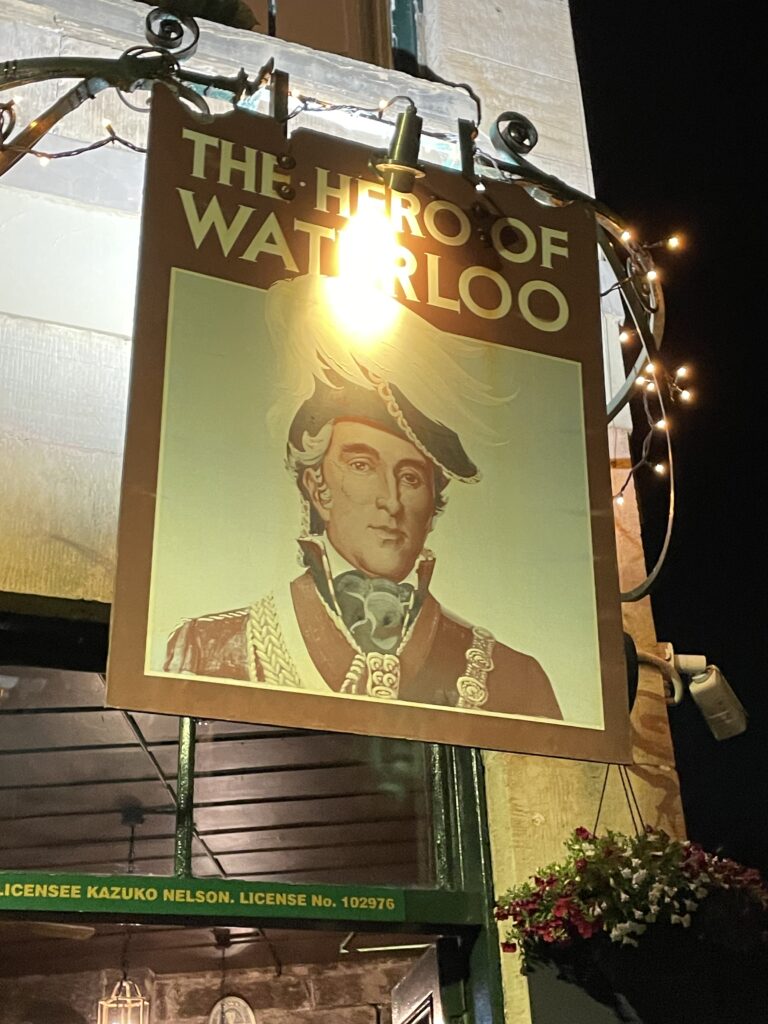
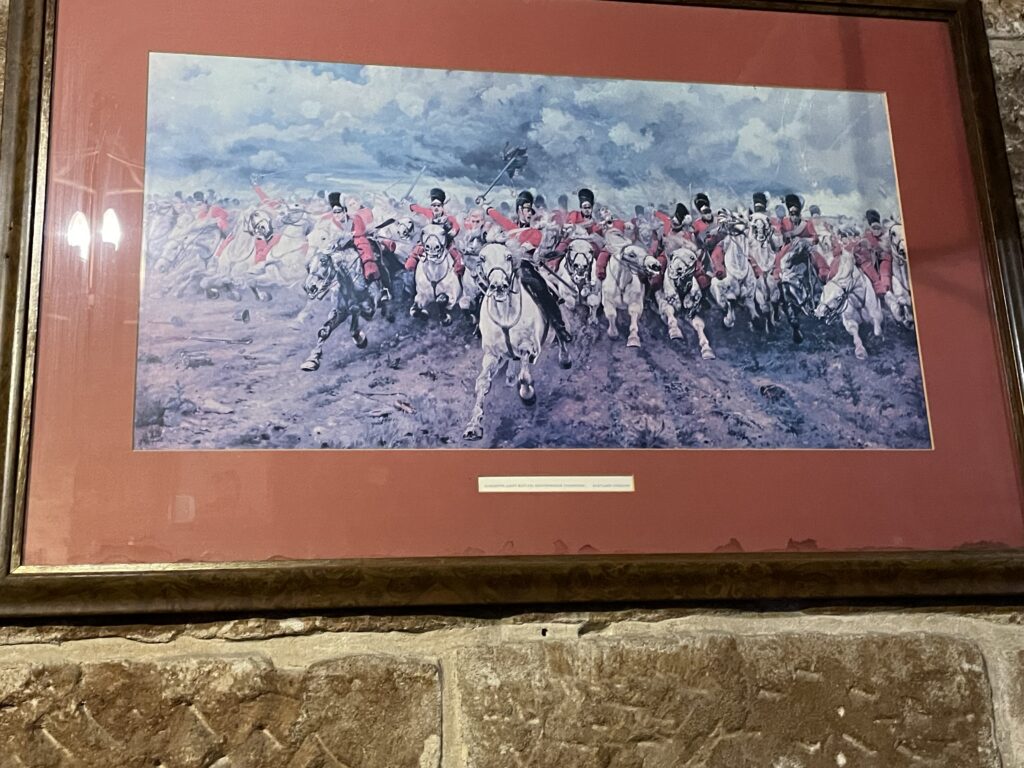
“The next day Australians just seemed to get on with their lives as much unaffected by the result as I found them to be unbothered by the vote in the first place”
Ultimately Australians are just not as woke as their elites would like them to be. Even in The Rocks, the heart of young metropolitan culture two of the major pubs are called ‘The Lord Nelson Brewery Hotel’ and ‘The Hero of Waterloo Hotel’, both of which are covered with suitable patriotic décor. The results came in and 60% rejected the referendum proposals. The maps in The Sunday Telegraph (Sydney) below show how the Yes vote won in all the city central areas you might expect, with limited support beyond. The next day Australians just seemed to get on with their lives as much unaffected by the result as I found them to be unbothered by the vote in the first place.
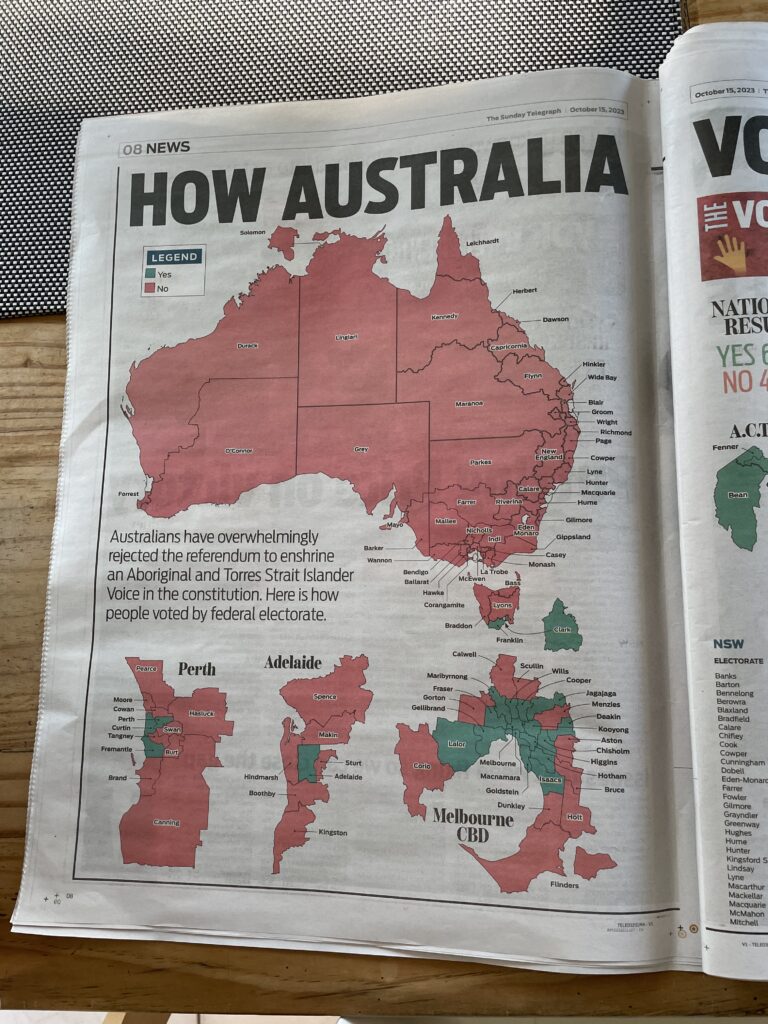
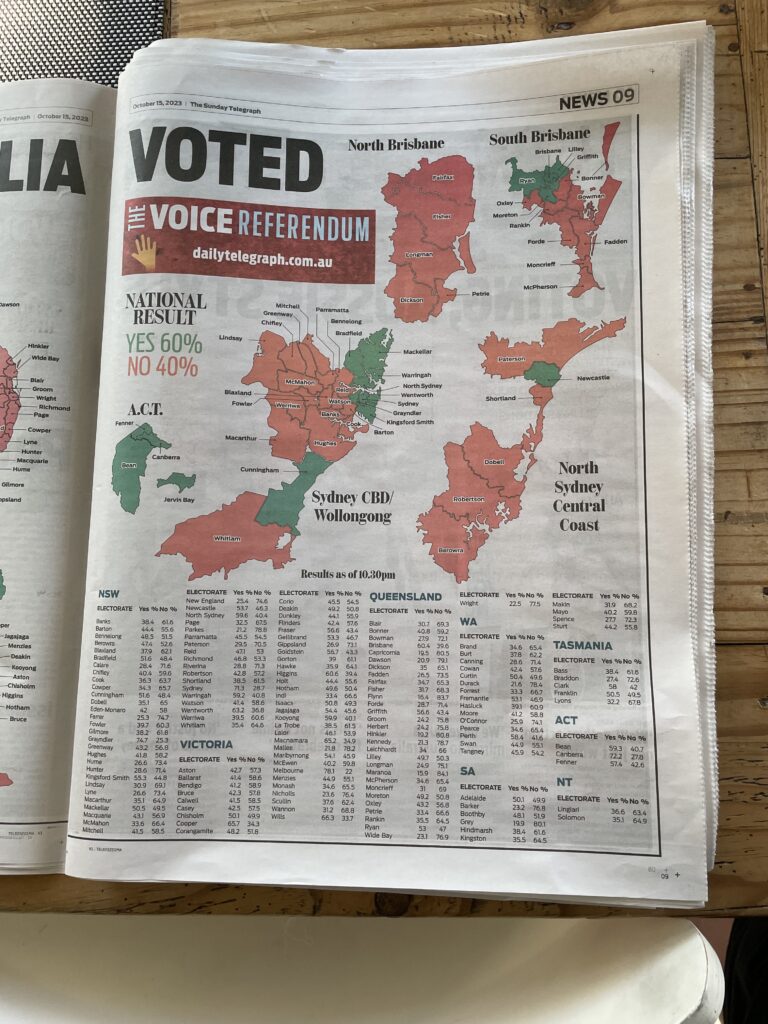
You may also like Mike’s previous article about politics spotting in Australia: ‘Newly risen, how brightly you shine’.

